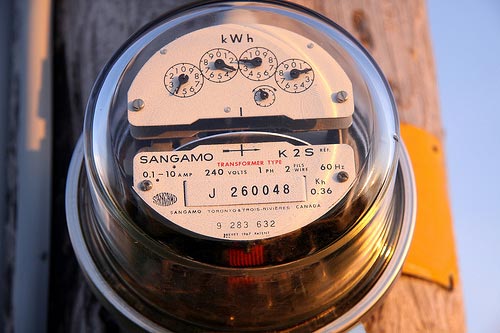With all the doom and gloom surrounding the smart grid of late, it’s hard not to get concerned about its future. But it’s important to realize that the smart grid is a lot bigger than the device that’s giving it a bad name. I’m talking about the smart meter.
Cnet’s Martin LaMonica asks, “Is this the summer of discontent for smart meters?” He points to several smart grid stumbling blocks like Baltimore Gas and Electric’s failure to secure approval for its smart meter roll-out (Update: It’s back on!) and Hawaiian Electric’s difficulty in winning regulatory approval for expanding its pilot program. This is in addition to some headline-grabbing consumer backlash experienced by PG&E and Oncor.
It’s pretty heavy stuff, particularly when regulators start poking around, or in BG&E’s case, drop the hammer. But compared to the monumental task of bringing our nation’s electrical grid into the 21st century, these are mere growing pains, pure and simple.
Smart meter ≠ smart grid
Not entirely, at least. Actually, smart meters will only represent roughly 10 percent of the smart grid investments through 2015, according to ABI Research. The lion’s share of funds will go toward things like technologies that improve distribution, prevent service disruptions, deliver electricity more efficiently and store energy from renewable sources.
The point is, don’t let scary headlines about those evil smart meters cloud your view on the smart grid market. For instance, software mavens should be encouraged by a forecast from the ARC Advisory Group that pegs smart grid software and services market growth at “65% over the next five years, representing a compound annual growth rate (CAGR) of 11.1%…” Not bad!
Sure, there’s the danger that too much resistance to smart meters will start to drag on the broader smart grid market. After all, why invest in smart energy systems and software when there are few (or no) smart meters to interact with? But my feeling is that smart meter backlash is symptomatic of consumers that finding it hard to swallow rate hikes that fund smart meter installs during an iffy economy. Add a handful of debacles and regulators have no choice but to take notice and weigh in.
So, don’t let the doomsayers dissuade you from the growing smart grid market and the opportunities it represents. And even if your business or startup hinges on smart meter deployments, there’s reason to be hopeful: over 300 million will be installed globally by 2015, according to Berg Insight. By 2020, the group predicts “many markets approaching 100 percent penetration by 2020.”
I’d be more worried about not serving that market.
Image Credit: BevK – Flickr CC


Leave a Reply